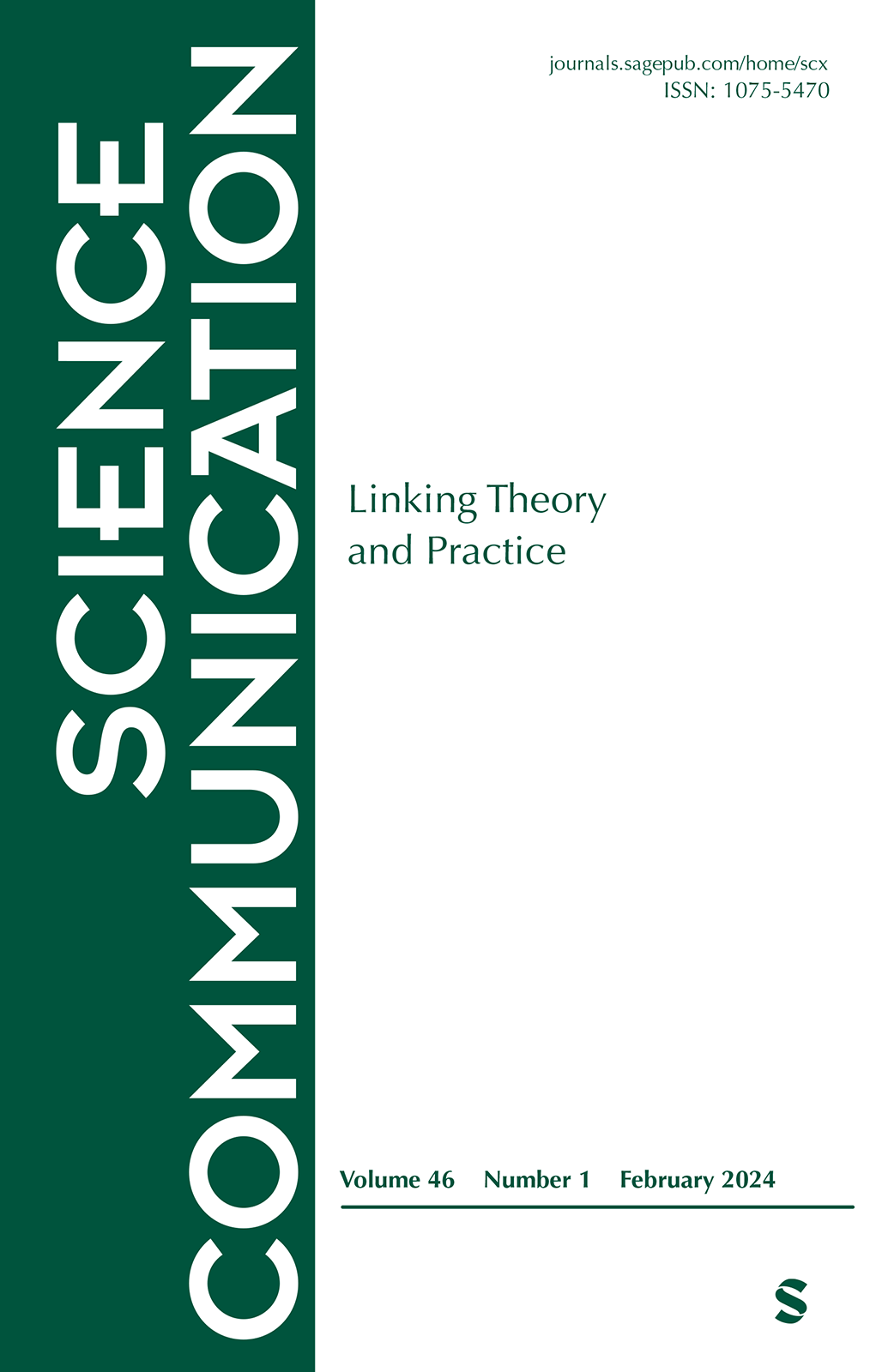作为 "归属口袋 "的科学传播空间:为在训科学家引入多元科学身份
IF 4.1
1区 文学
Q1 COMMUNICATION
引用次数: 0
摘要
科学交流空间可能是研究生学术空间敌意的解毒剂。利用科学身份的概念视角,我们采访了北美的 STEM 研究生,了解他们在这些空间中的归属感。我们的研究结果表明,许多科学传播空间欢迎多元化的另类科学身份,而学术空间则要求同化为单一的研究科学身份。这些结果表明,科学传播机构可以如何更有意识地为受训科学家培养归属感。本文章由计算机程序翻译,如有差异,请以英文原文为准。
Science Communication Spaces as “Pockets of Belonging”: Inviting in a Plurality of Science Identities for Scientists-in-Training
Science communication spaces may provide an antidote to the hostility of graduate academic spaces. Using the conceptual lens of science identity, we interviewed North American-based STEM graduate students about their sense of belonging in these spaces. Our results suggest that many science communication spaces welcome a plurality of alternative science identities, while academic spaces require assimilation into a singular research science identity. These results suggest how science communication organizations might more intentionally cultivate spaces of belonging for scientists-in-training.
求助全文
通过发布文献求助,成功后即可免费获取论文全文。
去求助
来源期刊

Science Communication
COMMUNICATION-
CiteScore
13.50
自引率
4.40%
发文量
19
期刊介绍:
Science Communication is a prestigious journal that focuses on communication research. It is recognized globally for publishing top-quality manuscripts that demonstrate excellent theoretical frameworks and robust methodology. Our journal embraces a broad definition of science, encompassing not only the natural and physical sciences but also social science, technology, environment, engineering, and health. Regardless of the scientific area, effective communication is always the focal point of our investigations.
Apart from theoretical and methodological rigor, we place great emphasis on the practical implications of scientific communication. Therefore, we expect all submitted manuscripts to address the real-world applications and significance of their research, alongside theoretical considerations.
In summary, Science Communication is an internationally renowned journal dedicated to bridging the gap between science and society. By promoting effective communication in various scientific domains, we strive to engage readers with intriguing research that has tangible implications for the world around us.
 求助内容:
求助内容: 应助结果提醒方式:
应助结果提醒方式:


